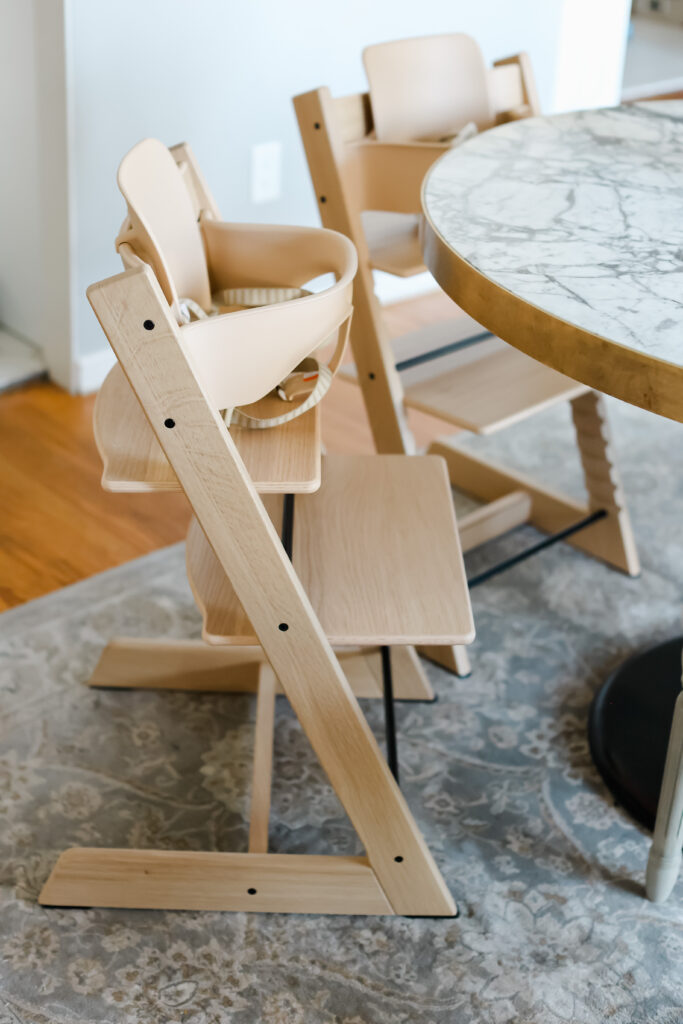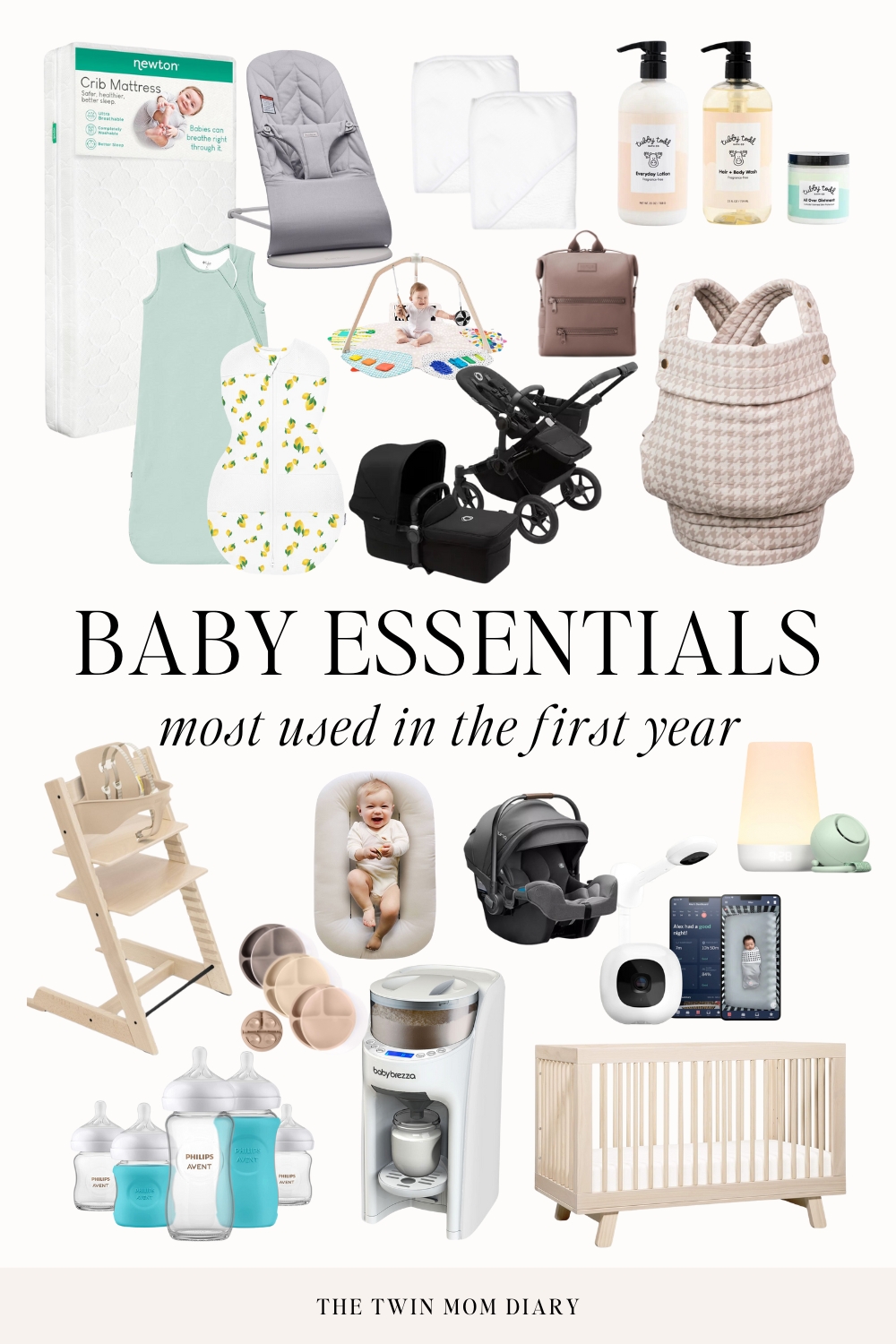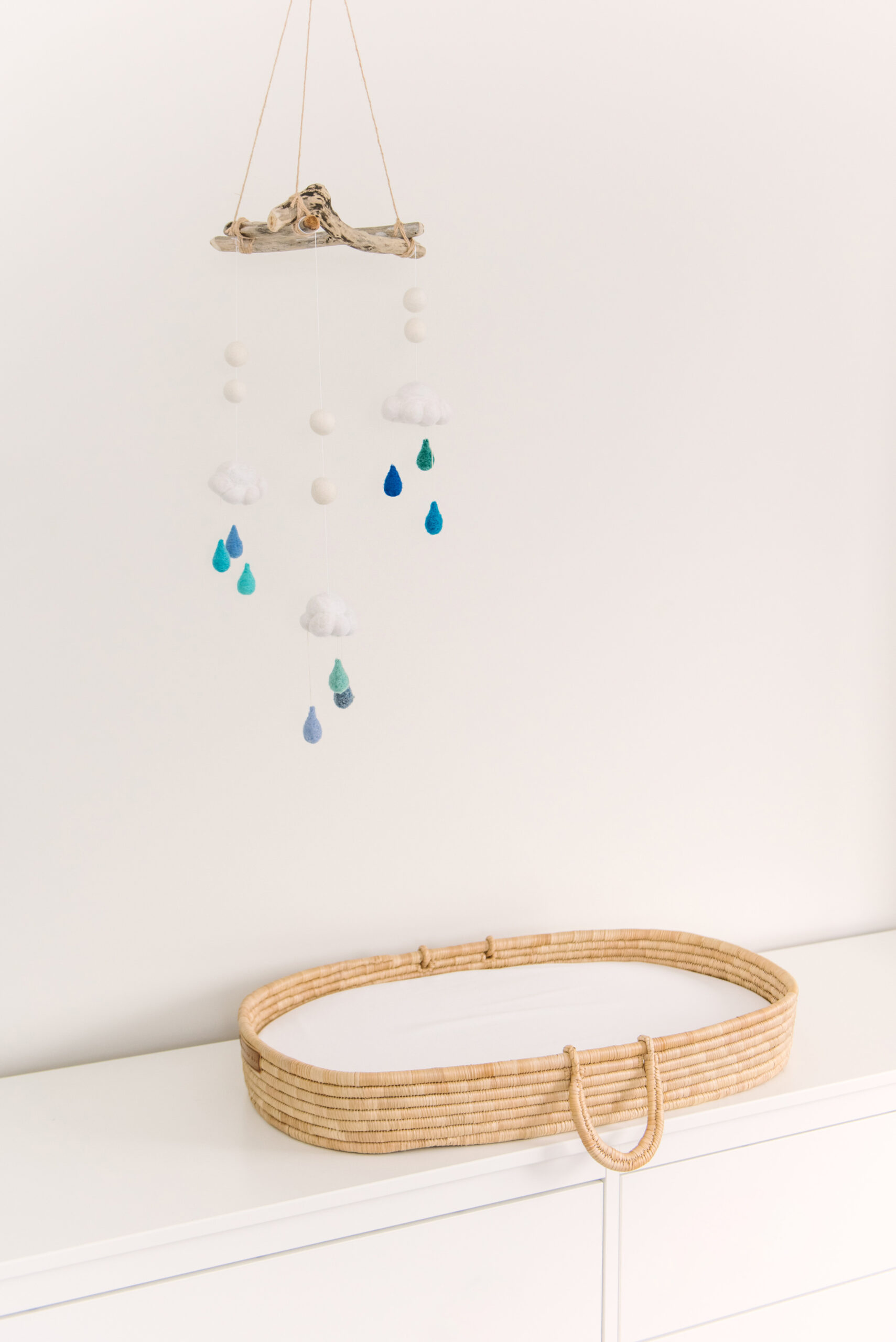Introducing your baby to solids can be an exciting and nerve-wracking experience. As a parent, you want to make sure you’re giving your baby the best possible start when it comes to nutrition. With so many options available, it can be tough to choose where to begin. Fear not, as we’ve compiled a list of the top 5 foods that are both easy to make and packed with nutrients to kick-start your baby’s food journey.
From the sweet and creamy taste of avocado to the fiber-packed goodness of peas, we’ve got you covered. So, grab a bib and let’s dive into the top foods for introducing solids to your baby.
Please remember to first consult with your pediatrician about starting solids, mixing solids and allergen prone foods.
When to Start Introducing Solids to your Baby?
One of the most important decisions a parent must make is when to start introducing solid foods to their baby’s diet. According to the American Academy of Pediatrics, most babies should be ready to start solids around 6 months old, when they have doubled their birth weight.
Some babies may be ready a little sooner, so you should consult your pediatrician for specific advice. It’s best to introduce solids while the baby is still breast- or formula-feeding as most babies aren’t able to get all the nutrition, they need from solids alone at this stage. Starting solids too early can cause problems with digestion, so making sure your baby is ready for solid foods is important.
I personally started with purees at 4.5 months as per the recommendation from our pediatrician. Starting solids is an exciting milestone! So, let’s discuss the 5 best baby foods to start with.

Sweet Potato
A great option when introducing solids to your little one is sweet potato. Sweet potatoes are packed with vitamins and minerals, including beta carotene, which is essential for eye health. They are also a great source of fiber and are easy for your baby to digest.
To prepare sweet potato for your baby, simply peel and steam until soft. You can then mash the sweet potato or puree it in a food processor until it reaches a smooth consistency. Sweet potato pairs well with a variety of other foods, such as applesauce or plain yogurt, making it a versatile addition to your baby’s diet.
If your baby seems hesitant about trying sweet potato, try mixing it with another food they already enjoy, such as banana or avocado. This can help ease them into the taste and texture of sweet potato.
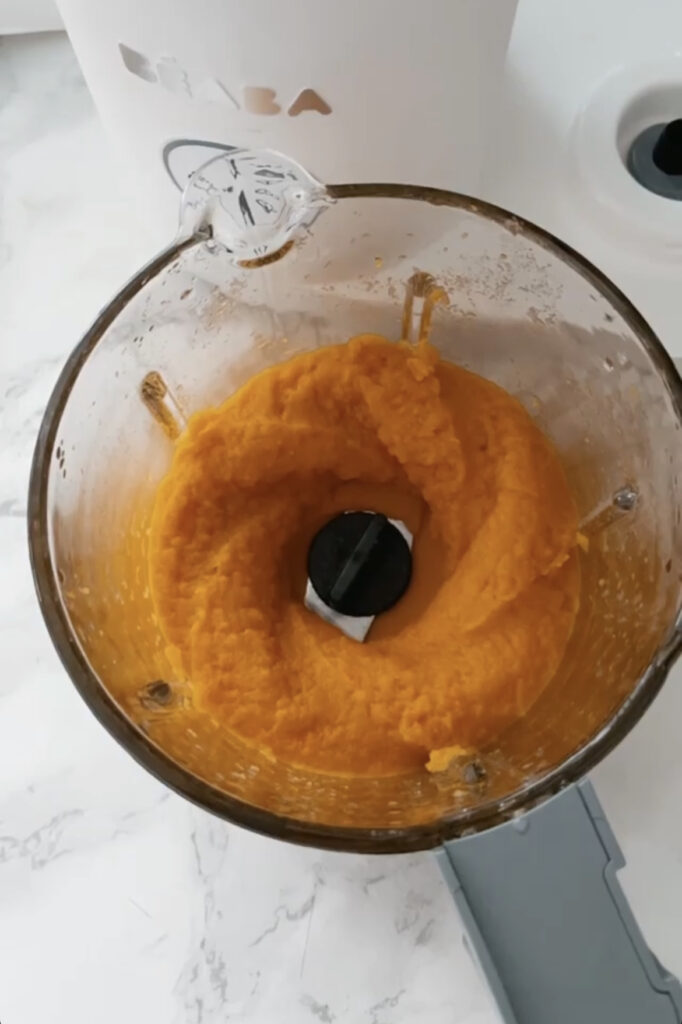
We used the Beaba Babycook to make all our baby food including purees. It was so convenient and easy to use.
Up next, we’ll be looking at another great option for introducing solids to your baby: banana.
Banana
Bananas are a beloved fruit for many babies and a popular choice when introducing solids. They are a great source of potassium, vitamin C, and dietary fiber. Bananas are easy to digest and have a smooth texture which makes them easy for babies to swallow. Additionally, their natural sweetness can help entice a hesitant eater.
When preparing bananas for your baby, make sure they are ripe but not overripe. Overripe bananas can be too soft and watery, which may not be appealing to your baby. Mash the banana until it has a smooth consistency, or cut it into small pieces for your baby to pick up and eat.
If your baby is not a fan of bananas, try mixing it with a food they already enjoy, such as avocado. This can help introduce new flavors and textures to your baby’s palate.
Up next, we’ll discuss another great food to introduce to your baby: avocado.
Avocado
If your baby isn’t too fond of the mushy and sweet baby food purees, then avocado may be the perfect food to introduce to them. This nutrient-dense fruit is full of healthy fats, fiber, and vitamins, making it an excellent choice for little ones. To prepare avocado for your baby, you can simply cut it in half and spoon out the flesh. Mash it until you achieve a smooth consistency or cut it into small pieces for finger foods.
Mixing it with other foods like sweet potato or banana can help in introducing new flavors to your baby’s diet. Avocado is also an excellent food to help with baby’s brain development and has a creamy texture that most babies love.
Up next, we’ll discuss another great food to introduce to your baby: oatmeal.
P.S. the twin’s favorite recipe when starting solids was mashed avocado with bananas! So delicious, try it with your baby, I bet they will love it too.
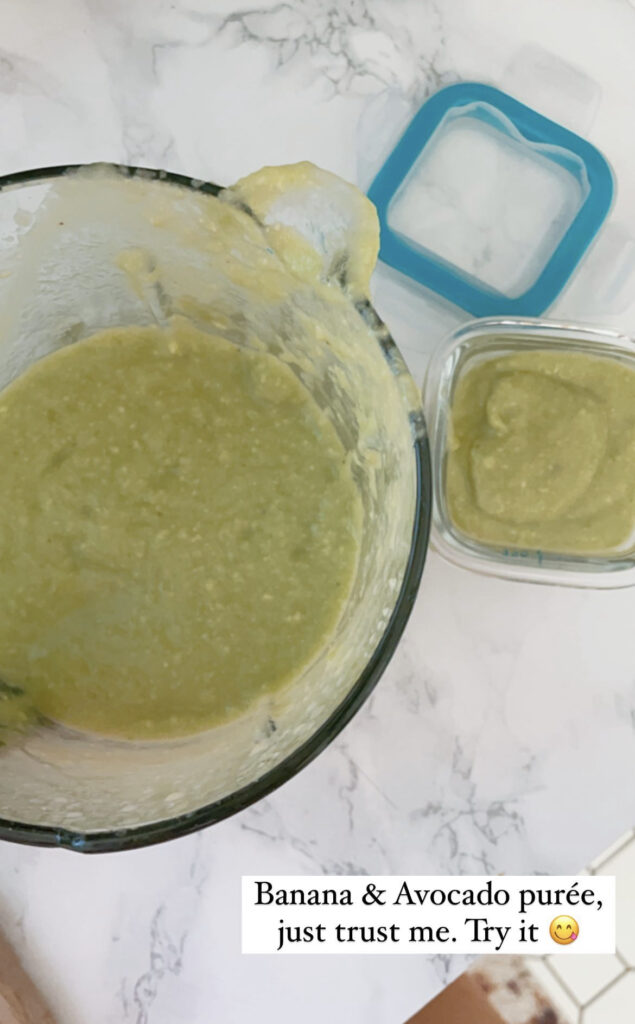
Oatmeal
Oatmeal is a great food to introduce to your baby as it is easy to prepare and packed with essential nutrients. Oats are high in fiber and protein, which can help regulate digestion and keep your baby feeling full. To prepare oatmeal for your little one, simply grind up rolled oats in a food processor or blender until you have a fine powder. Then, mix the oat powder with water or breast milk and cook on the stove until the mixture thickens.
You can also mix in pureed fruits like apples or pears for added flavor. Oatmeal is a great food to introduce once your baby has mastered single-ingredient purees and is ready for more complex textures.
Up next, we’ll discuss another great food to introduce to your baby: peas.
Peas
Peas are an excellent food to introduce to your baby, as they are one of the first vegetables that are safe for babies to eat. They are easy to prepare and packed with nutrients that support growth and development, including protein, vitamins A and C, and iron.
To prepare peas for your little one, simply steam or boil them until they are tender and then puree them in a food processor or blender. You can also mix in breast milk or formula to thin out the puree and make it easier for your baby to eat.
Peas are an ideal food to introduce to your baby once they have mastered single-ingredient purees and are ready for more complex textures. They can be mixed with other vegetables or fruits to make tasty and nutritious combinations.
Incorporating peas into your baby’s diet early on can help to develop their taste preferences for vegetables and encourage healthy eating habits as they grow.
Final Thoughts
In conclusion, introducing your baby to solids can be a daunting task, but it doesn’t have to be. By starting with the top 5 foods we’ve shared, you’ll be providing your little one with a nutritious and delicious beginning to their food journey.
Always remember to consult with your pediatrician, pay attention to signs of allergies, and enjoy this exciting milestone with your baby.
As the saying goes, “Food is not just fuel, it’s information. It talks to your DNA and tells it what to do.” So, let’s give our babies the best information possible to fuel their growth and development. Happy feeding!

